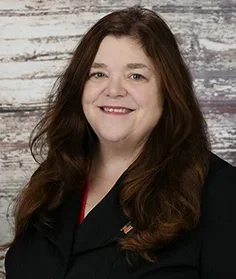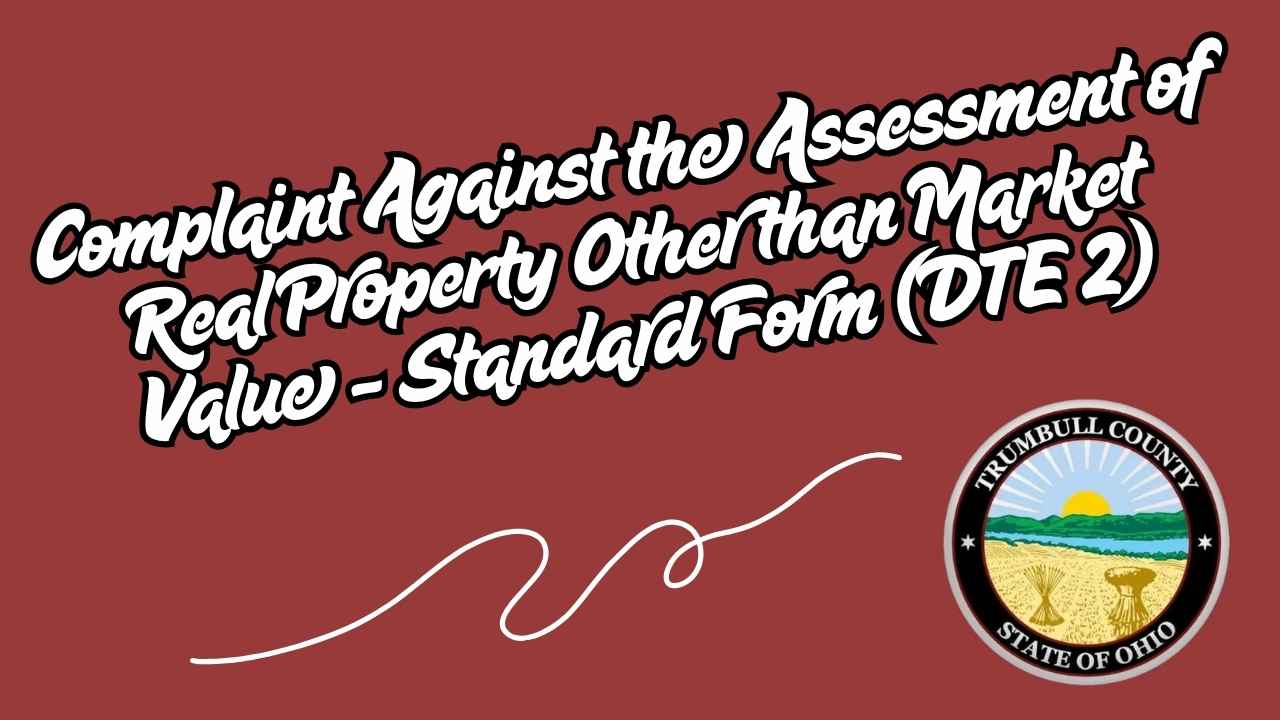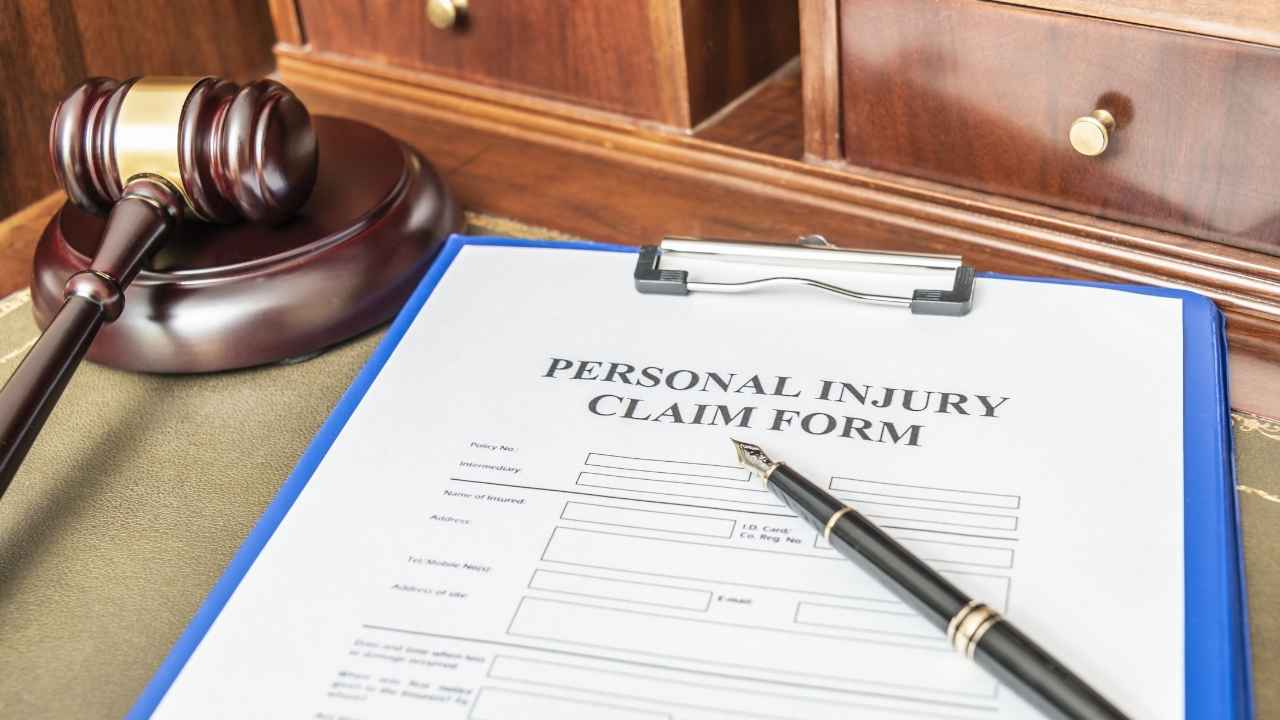In Trumbull County, Ohio, the DTE 2 form is used for complaints about real property assessments. It’s for issues not about market value. This includes concerns like property classification, agricultural land valuation, or exemptions. Knowing how to use it helps ensure fair assessments for property owners.
What Is the DTE 2 Form?
The DTE 2 form is a legal document in Ohio. It’s for challenging assessments not based on market value. This includes disputes over property classification or tax exemptions.
This form is filed with the Trumbull County Board of Revision (BOR). The BOR includes the County Auditor, Treasurer, and a County Commissioner representative. They review complaints to ensure fair assessments.
Why File a DTE 2 Complaint?
Property owners in Trumbull County might file a DTE 2 complaint for several reasons. These include incorrect property classifications, disputes over agricultural land valuations, or denials of tax exemptions. The process ensures assessments align with Ohio law.
Filing a DTE 2 complaint is a legal step. It’s important to provide clear evidence to support your case. The BOR will review your complaint and decide if changes are needed.
Common Reasons to Use the DTE 2 Form
Here are some common reasons to file a DTE 2 complaint in Trumbull County:
- Incorrect Property Classification: If your property is wrongly classified (e.g., commercial instead of residential), you can challenge it.
- CAUV Disputes: Issues with the Current Agricultural Use Value (CAUV) program, like incorrect land type or recoupment charges.
- Exemption Denials: If an application for a tax exemption, such as for a childcare center, is denied.
- Idle Land Issues: Requesting approval for CAUV land to remain idle for valid reasons.
Each case requires specific evidence to prove the assessment is incorrect.
How the Trumbull County Board of Revision Works
The Trumbull County BOR handles DTE 2 complaints. It meets annually to review disputes. The board ensures assessments follow Ohio laws, like those in the Ohio Revised Code (ORC).
Hearings are held at the Harrison County Courthouse. They last about 20 minutes and are recorded. Property owners must present evidence, like documents or photos, to support their claims.
Step-by-Step Guide to Filing a DTE 2 Complaint
Filing a DTE 2 complaint involves a clear process. Follow these steps to ensure your complaint is complete:
- Obtain the Form: Get the DTE 2 form from the Trumbull County Auditor’s website or office.
- Complete the Form: Fill out all sections, including your name, property details, and reason for the complaint.
- Gather Evidence: Collect documents like property records, photos, or income statements.
- Submit by Deadline: File the complaint by March 31, 2025, for the 2024 tax year.
- Attend the Hearing: Present your case to the BOR during your scheduled hearing.
Incomplete forms may be dismissed, so double-check your submission.
Key Deadlines for 2024 Tax Year
The filing period for DTE 2 complaints in Trumbull County is critical. Here’s what you need to know:
- Start Date: January 2, 2025
- Deadline: March 31, 2025, by 4:30 PM or postmarked by this date
- Hearing Notices: Sent by certified mail at least 10 days before your hearing
Missing the deadline means waiting until the next year to file.
What Evidence Should You Provide?
To succeed, you need strong evidence. Here are examples of what to include:
- Property Records: Show the current classification or assessment details.
- Photos: Prove physical conditions, like land use or property damage.
- Income Statements: For income-producing properties, show financial data.
- CAUV Documentation: Provide proof of agricultural use or idle land reasons.
The BOR relies on this evidence to make a fair decision.
Common DTE 2 Complaint Types and Evidence Needed
| Complaint Type | Description | Suggested Evidence |
|---|---|---|
| Property Classification | Wrong category (e.g., commercial vs. residential) | Zoning documents, property use proof |
| CAUV Valuation | Incorrect agricultural land valuation | Soil type records, farming records |
| Exemption Denial | Denied tax exemption (e.g., childcare center) | Exemption application, denial letter |
| Idle CAUV Land | Seeking approval for idle agricultural land | Proof of valid reason (e.g., illness) |
This table helps you match your complaint to the right evidence.
Property Assessments in Trumbull County
Trumbull County assesses properties every three years, as required by Ohio law. This process, called a triennial reappraisal, updates property values based on market trends. The 2023 reappraisal set values for the 2024 tax year.
Assessments consider factors like recent sales in your neighborhood, property condition, and changes like additions or demolitions. The DTE 2 form is used when these factors are misapplied, not when you disagree with the market value.
Difference Between DTE 1 and DTE 2 Forms
The DTE 1 form is for complaints about market value, while the DTE 2 form covers other issues. For example, if you think your property’s market value is too high, use DTE 1. If the issue is about classification or exemptions, use DTE 2.
Using the wrong form can lead to dismissal. Always check the instructions on the Trumbull County Auditor’s website.
Legal Considerations for Filing a DTE 2 Complaint
Filing a DTE 2 complaint starts a legal process. Ohio law allows only one filing per triennial period (three years). A withdrawn or dismissed complaint counts as your filing.
The burden of proof is on you, the property owner. You must show why the assessment is wrong. Consulting an attorney can help, but many owners file without one.
What Happens After Filing?
After you file, the BOR reviews your complaint. You’ll get a hearing notice by certified mail. At the hearing, you present your case, and the board may ask questions.
Decisions are made after the hearing. If approved, value changes are applied to your taxes. You may get a refund if overpaid, but you must apply for it.
DTE 2 Filing Process Timeline
| Step | Timeline | Details |
|---|---|---|
| Filing Period | Jan 2 – Mar 31, 2025 | Submit by 4:30 PM or postmark |
| Hearing Notice | At least 10 days before hearing | Sent via certified mail |
| Hearing | Scheduled after filing | 20-minute session, recorded |
| Decision | After 30-day appeal period | Applied to taxes or refund issued |
This timeline keeps you on track for a successful filing.
Tips for a Successful DTE 2 Complaint
To improve your chances, follow these tips:
- Be Clear: State your issue and desired outcome clearly.
- Provide Evidence: Strong documentation is key to proving your case.
- Meet Deadlines: File by March 31, 2025, to avoid dismissal.
- Prepare for the Hearing: Practice explaining your complaint concisely.
These steps help ensure the BOR understands your case.
Common Mistakes to Avoid
Many property owners make mistakes when filing. Here’s what to watch out for:
- Incomplete Forms: Missing information can lead to dismissal.
- Wrong Form: Using DTE 1 instead of DTE 2 for non-market issues.
- Late Filing: Missing the March 31 deadline.
- Weak Evidence: Not providing enough proof to support your claim.
Avoid these to strengthen your complaint.
How Assessments Affect Your Taxes
Assessments determine your property’s taxable value. In Trumbull County, the average tax rate is about 1.37% of the assessed value. A wrong assessment can raise or lower your tax bill.
The BOR can only adjust property values, not tax rates. If your complaint succeeds, your taxes may decrease, but the board doesn’t directly change tax amounts.
CAUV and the DTE 2 Form
The Current Agricultural Use Value (CAUV) program lowers taxes for farmland. If your CAUV application is denied or the land is misclassified (e.g., cropland instead of woodland), you can file a DTE 2 complaint.
You’ll need to show evidence like soil type records or proof of agricultural use. The BOR will review whether the CAUV assessment is correct.
Exemptions and the DTE 2 Form
Some properties, like childcare centers, qualify for tax exemptions. If your exemption is denied, you can use the DTE 2 form to appeal. Provide the denial letter and your original application as evidence.
The BOR will check if the denial was fair and follows Ohio law. This process ensures eligible properties get the exemptions they deserve.
Idle Land and CAUV Complaints
If your CAUV land is idle (not farmed) for a valid reason, like illness or conservation, you can request approval to keep CAUV status. File a DTE 2 complaint with proof of the reason.
The BOR will decide if your reason qualifies under Ohio law. This can prevent recoupment charges for non-use.
What Happens If Your Complaint Is Denied?
If the BOR denies your complaint, you have 30 days to appeal to the Ohio Board of Tax Appeals or a county court. You’ll need to provide the same evidence and explain why the BOR’s decision was wrong.
Consulting an attorney for an appeal is recommended, as it’s a more complex legal process.
Why Fair Assessments Matter
Fair assessments mean you don’t pay too much in taxes. They also keep property values the same everywhere in Trumbull County. The DTE 2 form helps fix mistakes, saving you money and ensuring fairness.
Ohio law demands accurate assessments. The BOR makes sure this happens for all property owners.
Resources for Trumbull County Property Owners
Here are some useful resources for filing a DTE 2 complaint:
- Trumbull County Auditor Website: Find forms and filing details.
- Ohio Department of Taxation: Learn about state laws and exemptions.
- Local Attorney: Get legal advice for complex cases.
- Property Records: Use the Trumbull County Public Access database for data.
These resources make the process easier and clearer.
Conclusion
Filing a DTE 2 complaint in Trumbull County helps fix property assessment problems not related to market value. By understanding the process, gathering evidence, and meeting deadlines, you can get a fair outcome. Use the Trumbull County Auditor’s resources to help you through this legal process.




